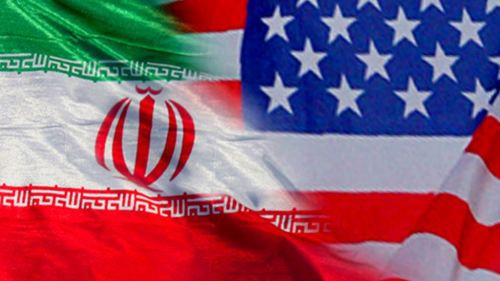US-Iran Relations: Behind the Smiles
US President Barak Obama and Iranian President Hassan Rowhani became the first leaders of the two countries to talk in more than three decades.
Positive signs
During the phone call, the two sides agreed to step up dialogue to reduce disagreements over Iran's nuclear program, while expressing optimism about the prospect of improving bilateral relations.
This is the first direct high-level contact between the two countries' leaders since 1979 and is seen as a sign that both sides are serious about finding a deal on Iran's nuclear program.
This meeting was immediately welcomed by public opinion at home and abroad. The US press over the past two days has continuously published articles with titles such as "A breakthrough after more than 3 decades?" or "An opportunity to improve Iran-US relations".
 |
| Will US-Iran relations improve? (REF photo) |
The Iranian press also welcomed this first contact. The daily Arman said that the whole world is surprised by the new developments in US-Iran relations. Etamad newspaper published a photo of President Rowhani next to President Obama with the headline on the front page: "Historic contact".
The world also welcomed this step forward in Iran-US relations. German Foreign Minister Guido Westerwelle said: “We welcome Iran’s recent announcements and its readiness to lift the international community’s doubts. The dialogue with the Iranian government has been very positive. They have opened the door of opportunity and this is an important moment to build trust.”
Iraqi Prime Minister Nouri al-Maliki also affirmed that this stable relationship will help reduce tensions in the region and the world.
In recent days, the smiling photo of Iranian Foreign Minister Mohammad Javad Sharif and his US counterpart John Kerry during a recent meeting has been the clearest evidence of the transformation in bilateral relations.
There are still doubts
Many analysts remain skeptical about these positive developments. They say that Iran is facing economic difficulties due to US and Western sanctions. As Iran’s economy improves, will this Islamic country change its stance?
Analysts also warn against expecting too much, because in reality, over the past 35 years, the US-Iran relationship has had many moments with breakthrough opportunities but they never became reality.
Canadian Foreign Minister John Baird said it will take more than just a phone call to ease the US-Iran relationship. Mr. Baird stressed that dialogue is good but Iran has not yet made any clear, specific steps.
After high expectations, the harsh reality will become clearer when nuclear talks begin on October 16 in Geneva.
Analyst Shashanr Joshi of the Institute for Policy and Security Studies in the UK commented: “Iran still wants sanctions relief. However, the US and the West also have a long list of demands.
A deal would certainly involve Iran suspending its uranium enrichment activities and allowing inspectors access to nuclear sites. That is certainly something that both Iran and the United States are aware of when they want to reach a deal.”
In addition, both governments will face domestic opposition if they reach a deal. Many senior US lawmakers remain cautious about Iran's every move, believing that this could give Iran more time to develop nuclear weapons.
In Iran, Mr. Rowhani also faced criticism immediately after this phone call. Supreme Leader Ayatollah Ali Khamenei called on the government to adopt “tough flexibility” in any nuclear dialogue.
Public opinion is also concerned that those who lost the election last June in Iran are also waiting for this opportunity to target Mr. Rowhani.
Karim Sadjadpour, an Iran analyst at the Carnegie Endowment in the US, said the most difficult negotiations may not be between Obama and Rowhani, but between Obama and the parliament, Rowhani and Supreme Leader Ayatollah Khamenei.
However, observers also believe that the two leaders of Iran and the US will have to make every effort to reach a final agreement.
Mr. Rowhani was elected in the recent presidential election with a pledge to lift sanctions to revive the economy.
Meanwhile, President Obama also knows that if he does not reach a nuclear deal with Iran, at some point in the next three years he may face a difficult political choice: launch a war or accept a nuclear-armed Iran?
Therefore, as Mr. Obama recently stated at the United Nations, the rock on the road is very large, but the two governments, for great political reasons, will do everything to reach an agreement./.






